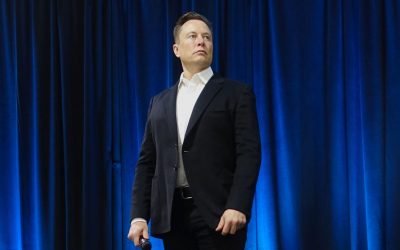The mainstream media have reacted with indignation over reports that the average CEO of a large company earns 300 times the salary of the average employee.
In the 1960s, then-Objectivist Alan Greenspan made an excellent point relevant to pay differentials: the issue is the range of action and responsibility that a given position carries. Whether a man on the assembly line performs poorly or well has a narrow, limited effect on the company, but how well the CEO performs affects the every aspect of the company, and even its continued existence.
Consider the CEO of GM, who has to decide such things as: will higher gas prices remain in effect? should we then make fewer SUVs and more subcompacts? in trying to meet the new government mileage standards, should we make lighter weight cars (as my engineering department urges) or will that make car crashes too dangerous (as my safety department says)? should we meet the union’s wage demands, or hold out and face a long strike? we need more capital–are interest rates trending down (in which case we should wait) or up (in which case we should borrow immediately)? the public relations department wants us to donate $200 million to Harvard, to fund the study of “socially responsible leadership”–is that a wise us of our funds?
The fate of the whole company lies in the CEO’s hands. Only a very, very few people of those who’d like to make the high salary such a job has to carry can demonstrate the outstanding vision, leadership, adaptability, judgment, and integrative ability required.
Another way of stating this is that the CEO of a “large company”– which is what the claimed statistic deals with–has a lot more than 300 employees, and the CEO is the man in charge of every one of them.
Incidentally, the statistic comes from the Institute for Policy Studies, a communist or near-communist group. But I’m not questioning the statistic’s validity–I might be even higher than the 364-fold factor they claim. If so, it’s a poor reflection on the average worker that his work is worth even less than we thought.
The leftist view is that worth has nothing to do with pay-level. In the leftist fantasy, the level of the CEO’s salary is determined not by the scope of his position, but by some non-economic factor, such as that the Board of Directors play golf with the CEO. But note the self-refuting nature of that moronic notion: if that were true, then companies that squandered money on exorbitant salaries would be out-competed by those that paid only what the position was objectively worth to the company. Capitalism–even semi- capitalism–punishes the wasteful expenditure of funds on anything, including on executive salaries.
In the same way that capitalism imposes a financial penalty for racism in hiring practices, it imposes a financial penalty for paying any employee–even the CEO–too much or too little.
As I explained in my lectures “Philosophical Issues in Economics,” given at the 2008 Ayn Rand Institute conference, capitalism represents not “consumer sovereignty,” but the sovereignty of reason.




